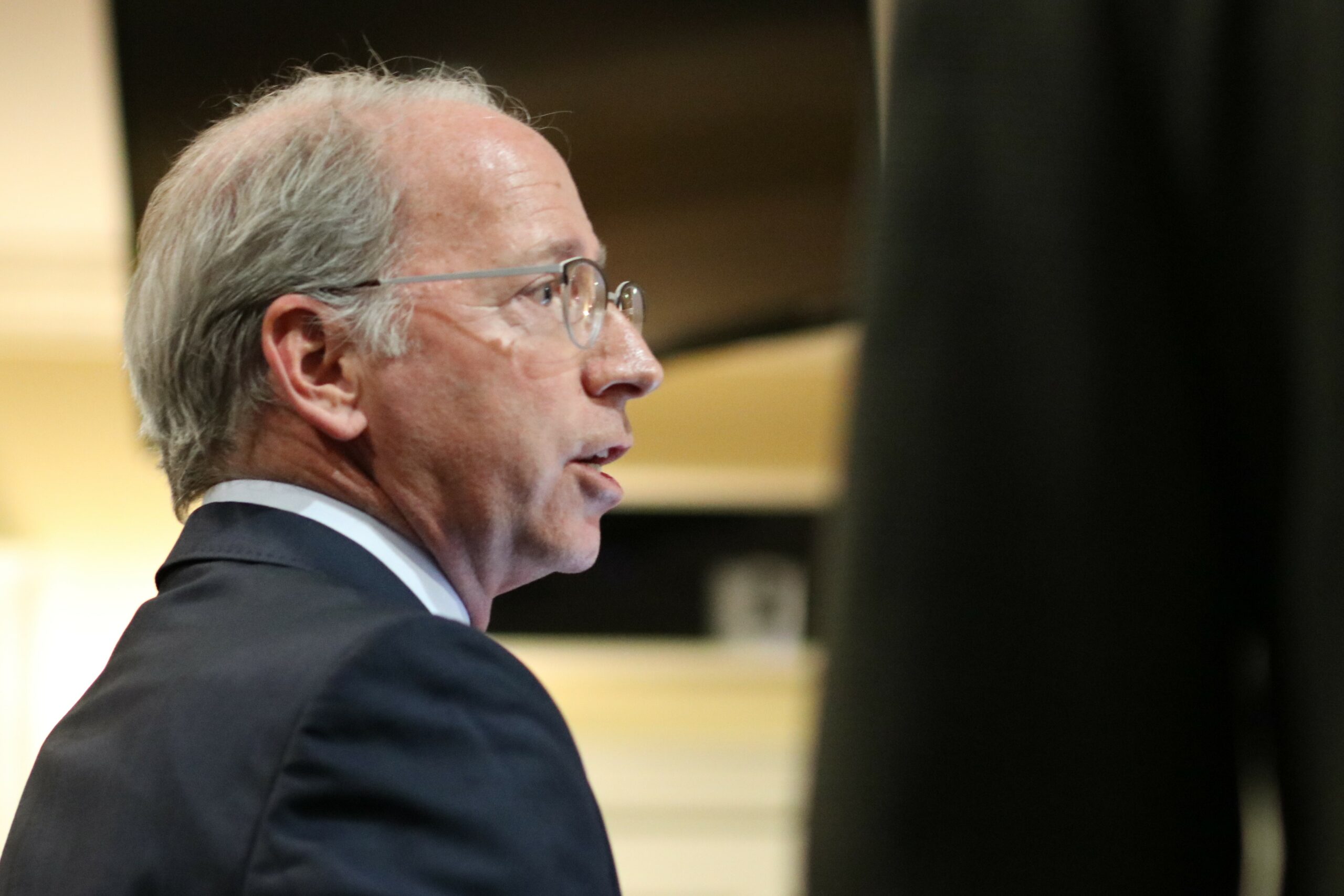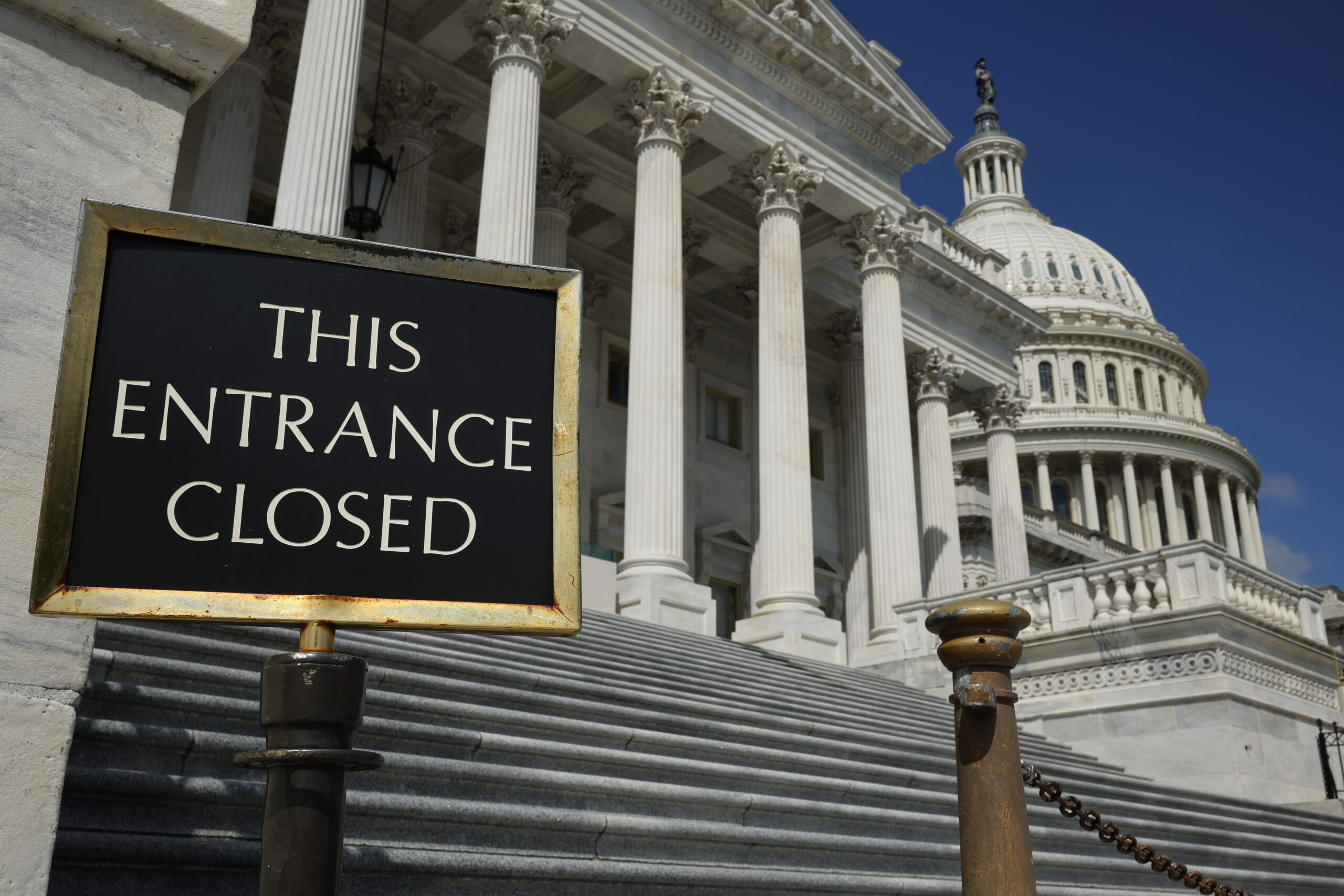On Heels Of New Audit Findings, UMMS Appointees Move Forward

Concerns about a truncated legislative session superseded a damning new report from legislative auditors as a Senate panel approved appointments to the beleaguered University of Maryland Medical System Board on Sunday.
The Senate Executive Nominations Committee postponed a vote earlier this session on nominees to the board, pending release of a forensic audit from the Office of Legislative Audits. That 100-page report, which auditors now consider to be a “review” as opposed to an audit by generally accepted standards, was released publicly late Saturday night.
The key findings: that UMMS made about $114.9 million in payments to 27 UMMS board members or their associated businesses between Jan. 1, 2016, and April 18, 2019.
Legislative Auditor Gregory A. Hook wrote that his office was unable to determine the extent to which board members or UMMS management were involved in the payments or to what extent the activity was disclosed to board directors. Hook blamed a lack of access to documents requested by auditors.
“As a result, key issues remained unanswered, including who authorized many of these transactions from both the procurement and disbursement perspective,” Hook wrote.
In a response to the draft audit findings, UMMS leadership stated that they strongly disagreed that the system was uncooperative during the review period and with the characterization of some financial transactions as potential conflicts.
Among the documents auditors sought access to and didn’t receive were approximately 1.6 million emails from five key senior management and procurement officials. “In September 2019, three months after our initial request, UMMS provided a computer disk with approximately 14,500 emails, some heavily redacted, based on its own search criteria, which we determined did not add value to our review,” Hook wrote.
Releasing the unredacted emails sought by Hook could have violated privacy laws and the system retrieved and provided emails in the same way they had in response to a federal subpoena, according to a response signed by James C. “Chip” DiPaula, the chairman of the board of directors; Mohan Suntha, president and CEO; and Jason Frankl, chair of the system’s audit and compliance committee.
The UMMS leaders also disputed transactions listed as potential conflicts of interest when there was no evidence of a personal benefit to board members or their family, including hospital dues to a statewide organization where a board member also served, transactions with businesses board members were no longer involved with, and donations to nonprofit organizations where UMMS members also volunteered.
The names of board members and vendors are not disclosed throughout the audit report. The UMMS leaders encouraged the auditor to include the information in a final report, but it was not, in line with “advice obtained from legal counsel to the Maryland General Assembly,” according to the final report.
At a Sunday afternoon meeting of the Senate Executive Nominations Committee, some lawmakers agreed that the audit was troubling, but voted to approve the nominees before a forced early adjournment.
“The audit had some concerning information in it, the whole incident was concerning. But right now, in this state of emergency, it’s really important that we have a health institution that is operating at full strength,” said Senate President Bill Ferguson (D-Baltimore City), who is a member of the panel. “We are going to trust in the administration of the hospital that they will executive their jobs with fidelity and thoughtfulness and ethics.”
Ferguson added that there will be an amendment incorporated into the state’s budget to restrict funding to UMMS, pending a report of the implementation of the recommendations in an independent audit as well as those from the Office of Legislative Audits.
But Sen. Clarence K. Lam (D-Howard) pressed against the favorable vote.
“UMMS really drew this report out, drew out the clock and then left us in the situation where we currently are, with a shortened timeframe because of the COVID-19 pandemic,” Lam said.
He noted the number of unanswered questions that still remain with the delivery of the OLA report ― which was required by legislation passed last year ― and said the report that auditors were ultimately able to produce fell short of what the General Assembly sought.
“From my perspective, what that means is that UMMS failed to comply with the law that was passed last year calling for a forensic audit,” Lam said. “That’s why I’m not comfortable moving forward with some of these folks because I find that to be unacceptable.”
Sen. Brian J. Feldman (D-Montgomery), responded to Lam, who quoted from some of the troubling findings in the report.
“The problem is, because everything is truncated, we’re under this unusual set of criteria, the UMMS folks don’t have an opportunity to respond to the report. I suspect that there are things about the report, and the characterizations, that they would push back on,” Feldman said. “As much as I’d like to give weight to the report, it’s hard to do that when the other side has not had an opportunity to respond. So that’s why I’m not as willing as you are to take the audit as face value.”
Sen. Delores G. Kelley (D-Baltimore County) said she was comfortable moving forward with the nominees because “those people who were there and who are the re-appointees know that they are under the spotlight at this point.”
Lam asked for a separate vote on five nominees to the UMMS board, including three returning members: DiPaula, the board’s new chairman; retired federal judge Alexander Williams Jr., and Erickson Living CEO Alan Butler.
All five nominees were recommended for Senate confirmation with Lam casting the lone dissenting vote.
The remainder of nearly two dozen nominees to the board passed unanimously.
In the wake of a self-dealing scandal in which former Baltimore mayor Catherine E. Pugh (D) received more than $500,000 from the medical system while she was a board member for copies of her self-published “Healthy Holly” books, a half-dozen board members resigned and five members of top management left UMMS. The board also adopted a new conflict of interest policy and committed to other “good government” reforms.
Legislation passed in 2019 ended the tenure of all previous board members, though it allowed them to re-apply if they were not term-limited.
Kristin Bryce, chief of staff at the medical system responded to the vote on Sunday afternoon.
“Having a fully confirmed Board of Directors is pivotal to the daily operations and mission of the Medical System,” Bryce said in a statement. “…As evidenced over the last nine months, the reconstituted UMMS Board and new management team have been fully committed to addressing the issues of the past and ensuring the continued adoption of governance best practices. The System remains focused on providing world-class health care during this global pandemic.”
Bruce DePuyt contributed to this report.




 Creative Commons Attribution
Creative Commons Attribution